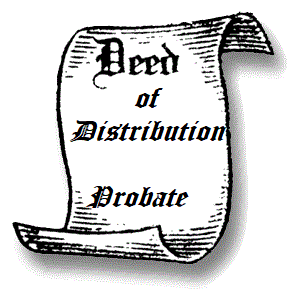Deed of Distribution

A Deed of Distribution for real property is generally one of the final steps of probate administration in South Carolina but one of the most important elements of transferring ownership to property. In South Carolina, the personal representative must execute a deed of distribution with respect to real estate owned by a deceased person in order to transfer or release the estate’s ownership or control over the property. The deed of distribution is evidence of the beneficiary’s title to the house, land or other real property interest of the decedent. An ancillary probate is often opened in South Carolina for the purpose of preparing a deed of distribution when an out-of-state decedent died owning real property in South Carolina. Each estate is different, and a deed of distribution can be made pursuant to the Decedent’s Will, South Carolina Intestacy laws, a disclaimer, family settlement agreement, or order from the Probate Court. In simple estates, we frequently prepare deeds of distribution to a surviving spouse for a ½ interest in jointly owned property that was purchased by both spouses as tenants in common prior to the now generally used “joint tenants with right of survivorship” deed.
South Carolina Probate Form
South Carolina provides a model form deed of distribution (Form#400ES). However, this form given to the personal representative states in the footer: “It is recommended that an attorney prepare this document and determine if a title examination is necessary.”
Should a Lawyer Prepare a South Carolina Deed of Distribution?
It is very important to draft a legally effective and accurate deed for real property. A deed of distribution has specific language, including a legal description, which must be precisely drafted to properly convey valid ownership of the property to the beneficiary. Even a minor mistake in the preparation or completion of the document can cloud the title to the property. If the proper language is left out or used incorrectly, the transfer of ownership to the estate beneficiaries could be deemed invalid. This may result in multiple legal claims or costly and prolonged efforts to clean up the chain of title down the road, likely when the beneficiaries go to sell the property. As such, it is highly recommended that a personal representative engage a South Carolina probate lawyer to prepare a deed of distribution. Even in a simple estate where a personal representative has handled the entire administration on their own, the York county probate court will recommend that the personal representative take the deed of distribution to an attorney. Having a competent lawyer draft the deed of distribution for an executor of a South Carolina will ensure that all the legal requirements are met and the document is properly recorded with both the county Probate Court and Register of Deeds.
If you are need of help with preparing a Deed of Distribution for a South Carolina estate please contact our South Carolina probate lawyers for help today by phone at 803-351-3597 or by email at info@nosaljeterlaw.com
Office hours by appointment: 9:00 am to 5:00 pm Monday-Friday.
Lake Norman Office
Fort Mill Office
*Our Fort Mill SC office is our mailing address for all written correspondence.
Copyright © 2025 Nosal & Jeter, LLP All Rights Reserved. Disclaimer: This is general information provided by Nosal & Jeter, LLP and is not legal advice.

